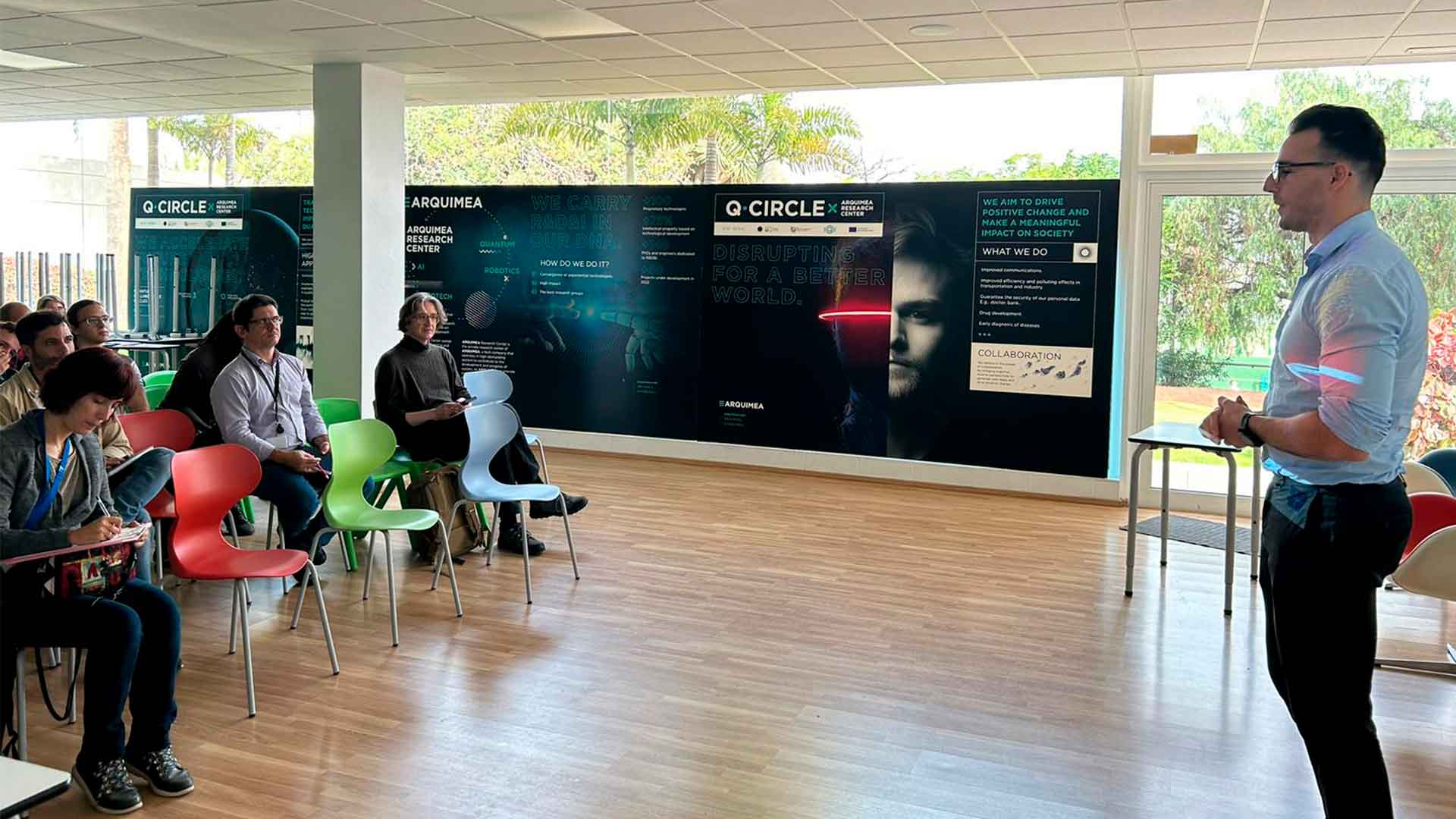- Sectors
- Aerospace & Defense
- Big science
- Fintech
- Insights

San Cristóbal de La Laguna, 15th December
During December 13th and 14th, ARQUIMEA Research Center organized the first QCIRCLE Workshop, gathering leading experts and collaborators in the field of quantum technologies. The event, held at the British Hispanic School of Tenerife, was attended by important partners involved in the QCIRCLE project, co-funded by the European Research Executive Agency (REA) and the entire research team of ARQUIMEA Research Center.
Among the activities of this conference were technical workshop sessions and presentations that addressed various aspects of quantum research. Attendees were able to listen to specialists and partners of the QCIRCLE project, such as David Arroyo, from CSCI, and Maabur Sow and Fedor Jelezko from the University of ULM (Germany), as well as Ruben Criado, general director of ARQUIMEA Research Center.
This first Workshop also included a brainstorming session, where participants discussed crucial topics in the field. Quantum and artificial intelligence for security, post-quantum cryptography and biosensing for cancer diagnosis were the most discussed topics throughout the session.
From ARQUIMEA we would like to thank all the speakers for their availability and contribution to this conference. For our Research Center it is a great source of inspiration to be able to count on such high level experts and thus contribute to consolidate our center as a leader in quantum technologies.
The success of this first QCIRCLE Workshop was also made possible thanks to the support of the British Hispanic School of Tenerife, which provided the space for the exchange of ideas and knowledge.
With this event, the center advances towards its goal of becoming a benchmark in the research and development of quantum technologies, opening up new possibilities and challenging the limits of innovation in the quantum world.
“Funded by the European Union. Views and opinions expressed are however those of the author(s) only and do not necessarily reflect those of the European Union. Neither the European Union nor the granting authority can be held responsible for them.”
